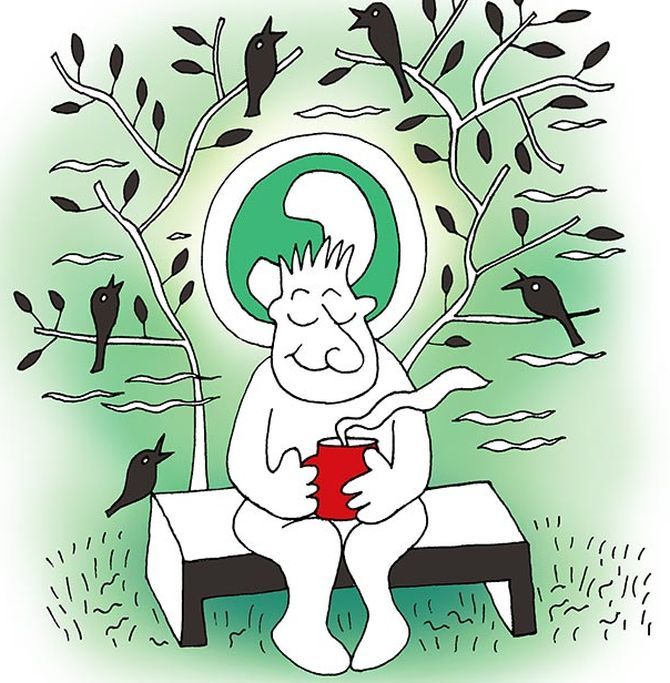Several of WhatsApp's early features were designed keeping Indian conditions in mind, given the choppy connectivity and existence of devices of different makes.
In fact, India was the first country where WhatsApp rolled out in-app video calling services in 2016, ahead of its global launch, underlining the importance of the market for the company.
Illustration: Uttam Ghosh/Rediff.com

As WhatsApp completes 10 years of operations, the Facebook-owned messaging service continues to be one of the most powerful platforms globally as well as in India.
This comes despite the messaging platform being embroiled in a slew of controversies in most of the countries it operates in.
WhatsApp, which has been able to hold its weight against Twitter, Google and Microsoft’s Skype, has about 1.5 billion users in 180 countries who find it easy to send messages across different countries and mobile devices.
“It’s been 10 years since we started WhatsApp!
"Over the past decade, we’ve heard from people across the globe who are using WhatsApp to stay in touch with their loved ones, connect with their communities, and build businesses,” said WhatsApp in a blog post.
“We’re excited to continue building features that make WhatsApp even more simple and reliable for everyone,” it added.
Even Internet giant Google has not been able to create a platform such as WhatsApp.
Last December, Google officially announced that it was shutting down its smart messaging app Allo.
Even though WhatsApp did not go for country-by-country launch to start with, the app was pretty much available in Google Play Store for all users, including those in India.
However, its popularity in the country really picked up around 2010-11, especially as several of its early features were designed keeping Indian conditions in mind, given the choppy connectivity and existence of devices of different makes.
In fact, India was the first country where WhatsApp rolled out in-app video calling services in 2016, ahead of its global launch, underlining the importance of the market for the company.
It launched payments through the Unified Payments Interface (UPI) for a select number of users last year, but has been awaiting regulatory clearance to launch the service formally.
Interestingly, Jan Koum, who along with Brian Acton founded WhatsApp in 2009, has a strong India connection, given that he grew up in Ukraine, earlier part of Soviet Union.
He was fond of Bollywood movies and a fan of Mithun Chakraborty.
“I grew up watching Disco Dancer. I watched it some 20 times as a kid,” Koum was quoted as saying in one of his previous interviews in 2014.
He grew up in the Ukraine and moved to Silicon Valley as a teenager.
Koum’s eastern European background, however, was the key to building WhatsApp, as he grew up in a communist country known for its secret policing activities.
This was one of the reasons why WhatsApp did not collect personal data and messages were deleted from the servers once delivered.
The biggest milestone for WhatsApp, however, came in 2014 when Facebook bought the company for a whopping $19 billion.
It was five years old with absolutely no revenue.
Over the years, the messaging platform has evolved from an update-only app to one that lets users send messages, make video and audio calls and even make payments.
Last April, Koum quit the company over disagreements about privacy and encryption as WhatsApp was built with a focus on privacy and a despise for ads.
However, the service was under pressure to make money.
His departure also came after the Facebook–Cambridge Analytica data scam, which was a major political scandal in early 2018.
It was later revealed that British analytics firm Cambridge Analytica had harvested personal data from the Facebook profiles of millions of users without their consent and used it for political purposes.












 © 2025
© 2025